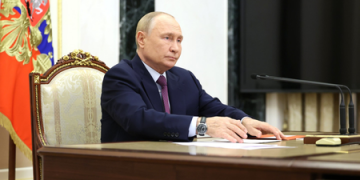Singer-songwriter Bob Dylan won the Nobel Prize in literature this year and it caused some to voice surprise, and others disapproval.
Salman Rushdie, himself a contender, generously welcomed the decision and called Bob Dylan “the great inheritor of the bardic tradition”.
Leonard Cohen, a contemporary of Dylan, said: “The award is like pinning a medal on Mount Everest for being the highest mountain.”
The Nobel committee said Dylan created new poetic expressions within the great American song tradition “and the lyrics minus the music is poetry”. “He can be read and should be read,” it said.
Dylan himself responded to the prize with bland indifference, perhaps even a touch of contempt, making it amply clear that the Nobel was not really needed to define his genius. The prize was not acknowledged for long despite reminders from the Nobel Committee.
The mercurial music legend had even given a couple of concerts after the announcement but made no public comment. He ended the suspense by finally stating that the prize rendered him speechless and that he would certainly attend the ceremony. And yes, he would be playing music instead of giving a speech.
As pointed out in an article in ‘The Guardian’, Rabindranath Tagore’s “Gitanjali”, which can be translated as song offerings and merited the Nobel Prize for literature as far back as 1913, was also a series of songs. Tagore’s poetry and music were influenced by the baul music of Bengal. The bauls were wandering mystic minstrels, poet practitioners who were Vaishnava Hindus and mystic Muslims.
In fact, the first poets of the world were bards and balladeers, whether they were poets of the Vedas or Greek poets such as Homer and Sappho, whose poetic texts were performed and listened to. In fact the Vedas were chants that were originally passed on in the oral tradition from generation to generation.
The function of one of the priests of the Rigveda appears to have been to produce the music that accompanied the singing. The ‘Ramayana’ and ‘Mahabharata’, the great epics, were largely musical and were chanted and sung before they were written.
All music, all words with lyrical quality, qualify as poetry and the greatest of all English bards, Shakespeare, has a number of songs in his plays that are gems of poetry — “Under the Greenwood tree who likes to lie with me”; “Blow, blow thou winter wind/ Thou art not so unkind as man’s ingratitude”; “Full fathom five thy father lies” and many more.
Robert Southey’s ‘Cataract of Lodore’ comes cascading down in musical torrents of words and Tennyson’s ‘The Brook’ runs along to the sound of waters that have been music since the inception of creation. All music is poetry and vice-versa.
“How many roads must a man walk down/ Before you call him a man?/ Yes’n how many seas must a white dove sail/ Before she sleeps in the sand?/ Yes’n how many times must the cannon balls fly / Before they are forever banned?/ The answer my friend is blowing in the wind/ The answer is blowing in the wind.” This is poetry.
By awarding Dylan, the Nobel Committee has widened the horizon of literature and stepped across genres and the great dialogue of literature has become more inclusive. In an age when writing in the conventional sense is moving over to yield place to novels in text messages, graphics and emojis, why not recognise Dylan’s music as it has influenced generations of fans to be considered literature?
To all his critics, he is saying: “And don’t criticise/ what you can’t understand . . . Your old road is rapidly ageing/ Please get out of the new one.”







































